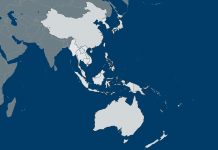Biden’s warning. U.S. President Joe Biden warned that cyberattacks could spark a shooting war. This follow’s last week’s launch of the U.S.-led multilateral cybersecurity coalition, which promptly put the spotlight on alleged Chinese attacks on Western firms and critical infrastructure.
Election meddling. Biden also accused Russia of attempting to interfere in U.S. congressional elections next year, saying Moscow was already spreading disinformation to sway the result. Meanwhile, U.S. and Russian representatives met in Geneva for the first round of strategic stability talks.
China meets Taliban. A Taliban delegation met with Chinese Foreign Minister Wang Yi. China supports the Taliban’s role in Afghanistan’s reconstruction but wants the group to cut ties with an Islamic movement responsible for attacks in China’s mostly Muslim Xinjiang region, Wang said.
Spillover threat. Islamic State fighters are moving into Afghanistan from countries like Syria and Libya, Russian Defense Minister Sergei Shoigu said. Russia is taking steps to counter the rising terrorist threat, including moving weapons and equipment to support the neighboring army in Tajikistan and training Tajik military personnel, Shoigu said. He also promised assistance from the 201st Russian base in Tajikistan.
More Central Asian security. Defense ministers from the Shanghai Cooperation Organization countries will discuss Central Asian security issues and hold bilateral meetings today in Tajikistan during their annual meeting. Members include China, India, Kazakhstan, Kyrgyzstan, Pakistan, Russia, Tajikistan and Uzbekistan, and Belarus is attending as an observer.
Practice makes perfect. The Chinese military held another round of exercises across the Taiwan Strait simulating an amphibious landing and island seizure. This comes as Taipei signed a deal for a big new package of maritime surveillance gear. If China makes a move against Taiwan, it likely won’t start near the main island itself.
Summer holiday. The European Union suspended legal action against the United Kingdom for breaches of the Northern Ireland protocol in an effort to deescalate the row. Last week, Britain’s Brexit minister sought a complete overhaul of the protocol governing trade in Northern Ireland. However, Brussels reiterated its opposition to renegotiate the protocol.
Interest in Africa. The U.S. government announced a renewed push to expand business and commercial ties between U.S. companies and African markets, with a particular focus on the continent’s infrastructure, clean energy, health, transportation and agribusiness sectors. The Biden administration also announced that it will ship almost 10 million doses of COVID-19 vaccines to South Africa and Nigeria, Africa’s two most populous states.
Spy games. A former Taiwanese vice defense minister is facing an espionage investigation related to alleged contacts with a Chinese spy ring. Chinese penetrations in Taiwan are a huge problem for Taipei, but they have also contributed to a major anti-China backlash.
Turkish-Angolan relations. Angola wants to strengthen its economic, financial and business relationship with Turkey, Angolan President Joao Lourenco said during a meeting with his Turkish counterpart. He also pledged regulatory reforms to facilitate business dealings. The two countries signed a cooperation agreement covering state media, investment, transportation and energy.







